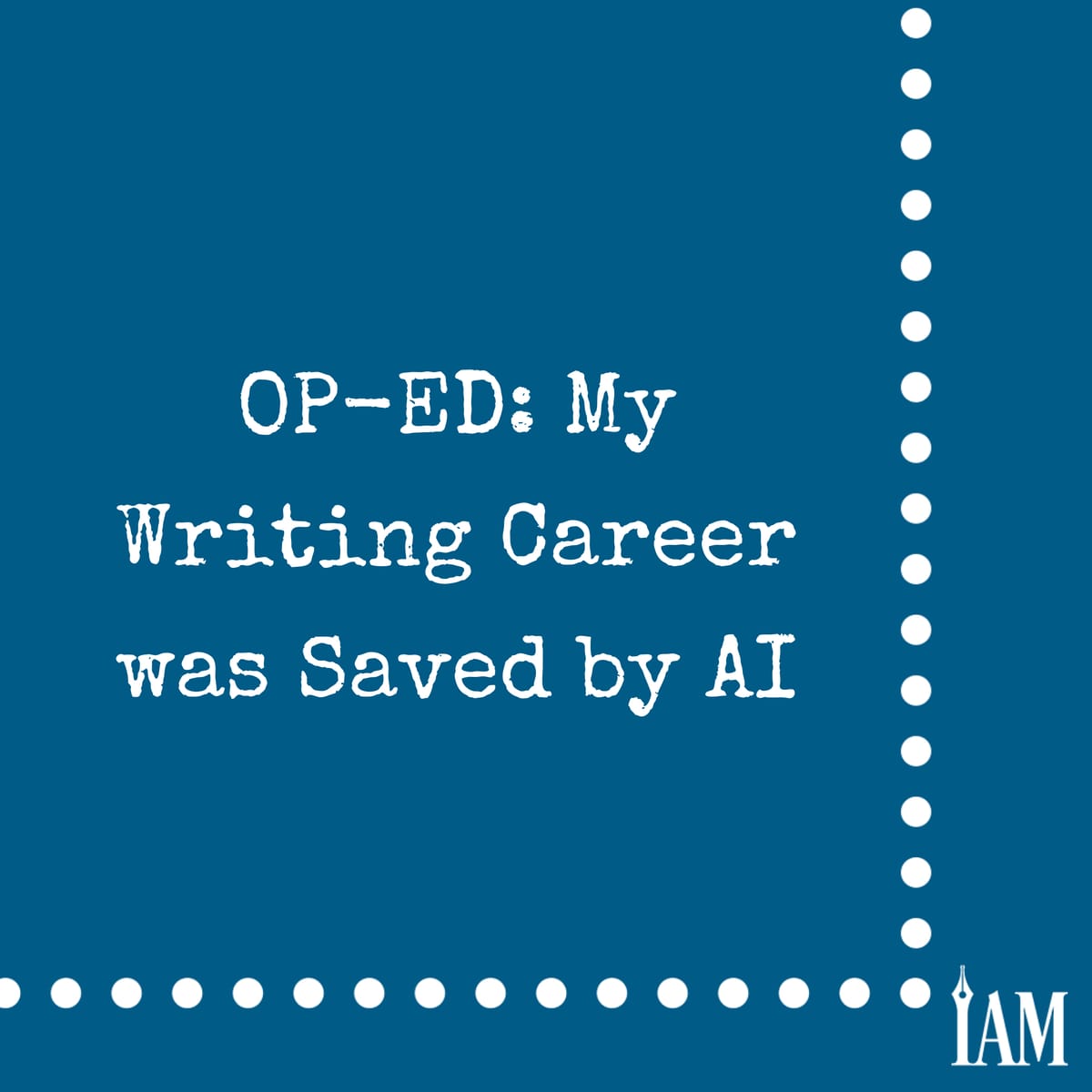How These Tools Became My Secret Weapon
Concerning. Frustrating. Scary. Terrifying. Horrifying. These are all words I’ve seen used to describe writing with AI in the last week alone. If anyone knows how to use words to rile up the author world, it’s fellow authors, right? But here are some other words I’ve used to describe AI to others: fun, exciting, inspiring, and helpful. AI has been all those things to me because AI saved me and my writing career this past year.
I’ve never been a speedy writer. I spend a lot of time mulling over my stories before I start writing. Often, I’m daydreaming while emptying the dishwasher or taking a shower, and those stories sit in the back of my head for months before becoming anything more than a few notes in Evernote. I have suffered from short-term memory issues for the last fifteen years, which means I have to really cement a story in my long-term memory to write it without forgetting it.
Before last year, I had been writing and publishing about three to four books per year. Certainly not a terrible output, but slower than many of my Sci-Fi Romance contemporaries who could write six to ten books annually. Still, I was happy with my progress.
Then I got sick with COVID. I tested positive in late April 2022 and was ill with cold-like symptoms and a sinus infection for two weeks. Still, the real problem was the months of lethargy and brain fog that followed. My short-term memory problems were ten times worse with COVID brain fog. I tried to write a book from May onward, and the process was devastatingly slow. Some days and weeks, I didn’t write at all. I could get in maybe one hundred to four hundred words when I felt a burst of energy. The book that typically takes me eight weeks to write took me over five months.
By then, I was exhausted from writing, and I cried to my husband that my writing career was over. The book was lousy. All the details were thin. My prose was dry, and I constantly repeated story elements because I couldn’t remember anything. I sat in despair until I remembered I had a subscription to this AI writing tool called Sudowrite. Maybe it could help me.
As I started using it and asking for AI’s help, the writing was suddenly fun again. Using Sudowrite was exciting and inspiring; it gave me good suggestions based on the Japanese culture in my books that prompted me to write something new. Description suggestions were rich with details, and the tools let me choose what I liked and discard what I didn’t. AI didn’t replace my work; it enhanced it. I was having a blast, and my five-month book was publishable in no time. I wondered if I could do it again from scratch, and I did a month later.
Now, I’m an AI enthusiast and run a Facebook group for other authors who want to learn the tools too. I’ve met countless others struggling to write because they have ADHD, fibromyalgia, arthritis, brain fog from chemo, or they’re fighting with some of the writing because it’s not their strong suit. These tools are helping them write again. Not all authors enjoy every part of writing. I excel with dialogue, but descriptions are tough for me. AI tools can help here, giving us the support we need in our weakest areas.
AI can be a powerful tool for authors. It won’t replace creativity but helps with inspiration, productivity, and efficiency. AI can also assist authors in becoming better writers by providing feedback and insights into their writing, helping them grow and prosper. Although there are some concerns about its implications, I believe AI is ultimately helpful and can be an excellent resource for authors. It saved me and my career, and I hope it can do the same for others.


